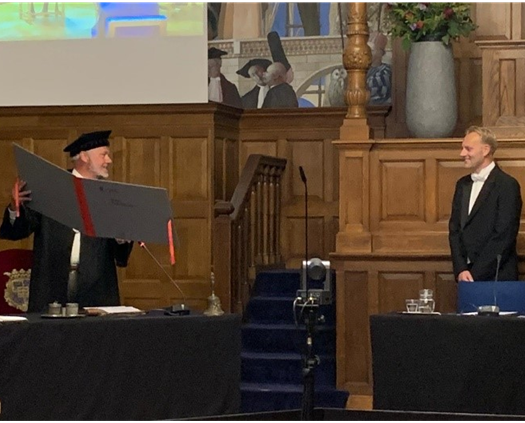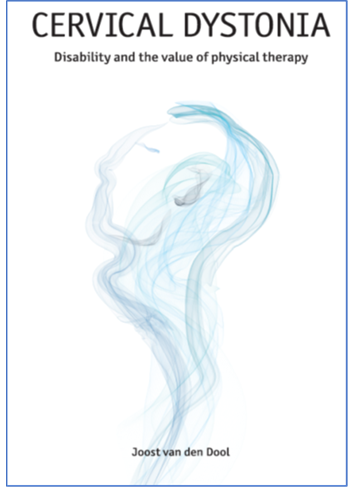
September the 21st was a memorable day for Joost van den Dool. On that day he successfully defended his PhD thesis at the University of Groningen in the Netherlands. His research focused on the effectiveness of a standardized physical therapy program for patients with cervical dystonia. Cervical dystonia is a type of dystonia characterized by involuntary movements and abnormal postures of the head and neck, causing pain and limitations in the ability to perform daily life tasks. It is usually treated with botulinum toxin injections in the affected muscles to decrease these movements and postures. Besides the treatment with injections, patients are often referred for physical therapy but evidence towards its effectiveness was lacking. Therefore Joost developed a specialized physical therapy program in cooperation with the Dutch DystoniaNet which he compared to regular physical therapy.
The specialized program aims to teach patients to handle their symptoms independently as much as possible since cervical dystonia is a chronic condition. From intensive therapy to strengthen the non-dystonic muscles to independent exercising and regular coaching by the therapist.
Research results show that regardless of the kind of physical therapy, patients were less disabled to perform daily life activities and experienced less pain. Unfortunately, no significant differences were found between the specialized program and regular physical therapy. However, patients that received specialized care were better able to manage their symptoms independently and needed less treatment sessions for similar results.
As a newly graduated PhD, Joost recently started to treat dystonia patients himself to help them be more independent and have voluntary control over their symptoms. Together with DystoniaNet he also plans to organize training sessions for therapists so the specialized program becomes available for as many patients as possible. We wish him the best of luck!
Monika Benson
Executive Director
Dystonia Europe
